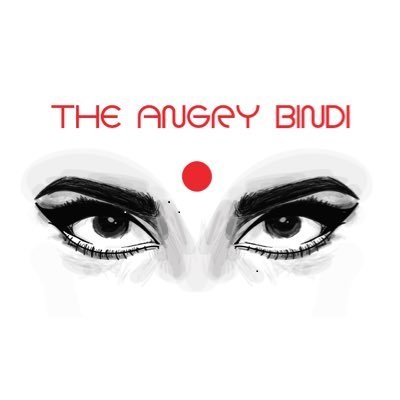
This July, my seventeen year old daughter and I attended the second event hosted by The Angry Bindi. By the end of the event I was brought to tears by my daughters secret confession as it was read anonymously within the circle of those attending the event.
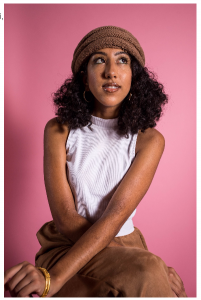
The Angry Bindi is a collective of four young women from the Sacramento Valley as well as their friends and family who have come together “to empower, educate and create unity within the South Asian and Middle Eastern community” says Sukhpreet Purewal, one of the mothers (founders) of The Angry Bindi. Unity and understanding is an express need in her community she says “to end the cycle of abuse and trauma.” Purewal wants for people in her community to feel accepted even when their identity lies outside of traditional norms. Purewal writes in her bio that she “is a queer Punjabi, Sikh, American-born writer, community organizer and spiritualist residing in Sacramento.” The lack of “radical, queer, brown space,” in the Sacramento Valley is something she seeks to remedy. Purewal is calling on her generation to take up this voice to remedy the hate and bring healing to her community.
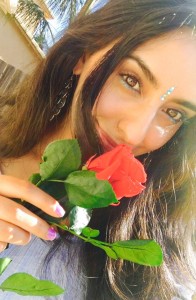
Jasmeen Bassi another Bindi mother wrote to me in a recent email “I feel as if when I am in a room with my elders, I can hear voices coming from their bellies. I understand their silence but I understand that it should not be this way. I feel as if my generation owes it to the women who came before us, to create a community where we stand together against the many dilemmas that a patriarchal society omits. I believe that the creation of the Angry Bindi is vital, especially in Northern California where there is a large South Asian Middle Eastern population. Bassi, who prefers to be referred to as Jassi, writes that her reason for creating The Angry Bindi is “to see the women in her community use the power of their voices, and not let cultural pressures keep them from speaking up.” Jassi says that she “truly believes no woman should have to shove her voice into her belly.”
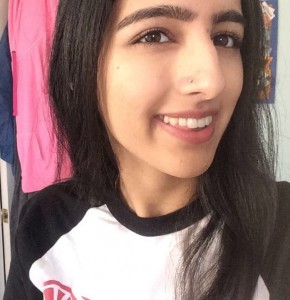
According to Paven Dhesi, this lack of voice is damaging to the women in her culture, “The reason I wanted to help create this collective is to provide women with a safe, nondiscriminatory environment in which they can share ideas and experiences they all think about, but may have a hard time talking about.Our culture views many subjects (especially ones that concern women) as too taboo to speak about openly, which is causing more harm than good for these women. I want to help end this cycle.”
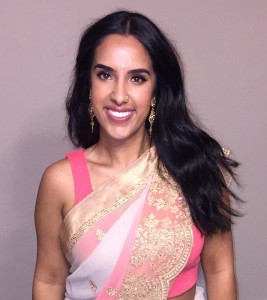
“A sisterhood that bonds in a multitude of ways—intellectually, emotionally, socially, etc.” is how Jasmine Lakhian sees the concept of The Angry Bindi. Lakhian wants The Angry Bindi “to provide a space, a physical and virtual space, where our women can come together and learn from one another and share their experiences of happiness, sadness, shame, confusion, and much more. The pain came from the feeling of disconnect from our community, along with the angers associated with cultural norms that some of us have simply outgrown. With this passion and pain, The Angry Bindi was conceived and eventually birthed.” Lakhian further elaborates, “Personally, the birth of The Angry Bindi was a magical moment for me because I know that this collective is needed in our community. As an Indian woman in America, there have been many times throughout my life where I have been torn between my culture and the choices I want to make.”
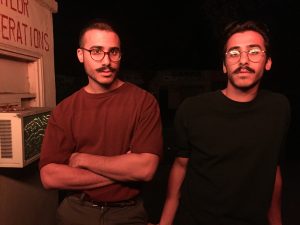
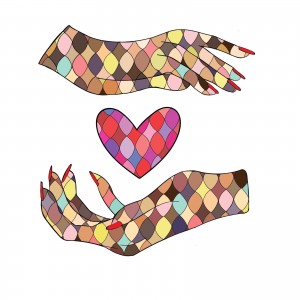
At the event the topics The Angry Bindi presented and discussed hit home for my daughter, who is of mixed raced. Her face showed signs of recognition of this struggle during the discussion, and as her secret confession was read from the slip of paper she had written it on, I cried. The battles these ladies are fighting are recognizable by women all around the world. The struggle to find one’s voice not only within her community but outside of it and helping those with a limited understanding of the culture in the first place is a daunting challenge. During the event it was not only the ladies we heard from but twins Yusuf and Shah Amani who also participate in The Angry Bindi. Shah created the Hands to the right and Yusuf created the eyes at the headline of this article. In a recent email Shah, speaking for both himself and his brother write, “Taking part in The Angry Bindi has been some of the most satisfying work we have done as artists.” He goes on to write, ” We grew up in a homogenous and predominately white town that can be hostile for people of color especially those perceived as Muslim, we craved a sense of community that provides safe space for others. For us, the Angry Bindi represents a place where the narrative of all identities are valued. During these events, many of the discourses that are often perpetuated in our society are challenged, while also creating a sense of bonding. In today’s political climate, it is important we recognize the circumstances that have contributed to the subjugation of minorities and women and how patriarchy is essential to the issues we face today. The Angry Bindi provides some level of agency in the empowering of women and building a counter narrative.”
Professor Rajan Gill also presented information on colonialism and discussed orientalism with the diverse group in attendance. Salvin Chahal the Creative director at Sol Collective, and 2012 poetry slam team champion, shared some of his spoken word poetry and waskind enough to offer the amazing space for the event and discussion. Sol Collective is a creative space in Sacramento that hosts events such as Poets of Color and focuses on bringing together professional artists and developing young artists to move the arts forward.
The Angry Bindi will hold their next event at Sol Collective in Sacramento on October 15, 2017 from 1pm to 4:30pm. The meeting will tackle the subject of dating within the South Asian and Middle Eastern community. They have
begun a photo series entitled, “Dating outside of Expectations–Loving without Limitations.” The idea is “to increase awareness within the community.” The group hopes to hold events in the Yuba Sutter Area in 2018.
I hold both an AS in Social and Behavioral Sciences and an AA in English from Yuba College. I have been on the editorial board of Flumes, literary arts journal, and contribute to the publication of The Western Farm Worker. No one knows what the future holds!
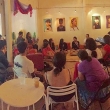
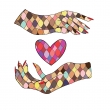

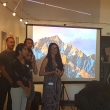

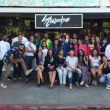

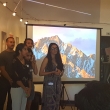



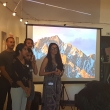

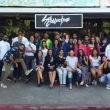
Comment Policy: Comments are welcomed and encouraged. However, the editorial board reserves the right to edit or delete, without notice, any comments submitted to the blog. For more details, see our full Comment Policy.